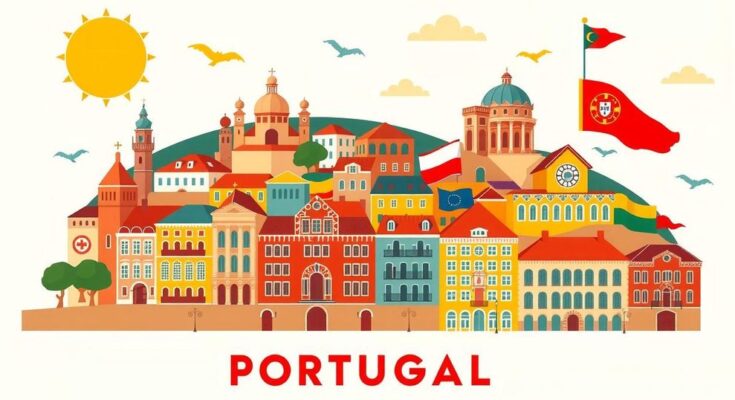Portugal may hold its third election in three years due to a confidence vote called by Prime Minister Luis Montenegro’s government. Facing intense pressure from opposition parties over alleged conflicts of interest, the ruling coalition could be ousted, leading to significant political instability. Economic factors and rising populism further complicate the political landscape, as a potential election is anticipated around mid-May.
Portugal is on the verge of potentially experiencing its third general election within a three-year span, prompted by Parliament’s arrangement of a confidence vote regarding the center-right minority government led by Prime Minister Luis Montenegro. The government has faced mounting pressure due to concerns over business ties related to Montenegro, compelling a significant portion of the opposition to signal intentions to vote for the government’s removal.
The ruling coalition, comprising the Social Democratic Party and the smaller Popular Party, holds a mere 80 seats in the 230-seat legislature and has been in power for less than a year. In a bid to address prevailing uncertainties regarding its governance, the government has requested this confidence motion, asserting that it is vital for advancing its policy agenda.
The two major opposition parties, who collectively possess 128 seats, have pledged to oppose the government during the upcoming debate. Several smaller parties have also expressed their intention to vote against the ruling coalition, thereby heightening the likelihood of governmental collapse and extended political uncertainty as Portugal addresses broader economic and security challenges.
Political tension in the country has intensified, largely due to inquiries into potential conflicts of interest involving the business transactions of Montenegro’s family law firm. The Prime Minister has refuted any allegations of misconduct, asserting that he transferred management of the firm to his relatives prior to becoming the Social Democratic leader in 2022.
Despite Montenegro’s denials, opposition factions have demanded greater transparency regarding the firm’s operations, especially following revelations of ongoing payments from a company linked to a substantial gambling concession. Should the government be forced to resign as anticipated, President Marcelo Rebelo de Sousa has indicated that new elections could occur around mid-May, as he retains the authority to initiate elections.
Amid a backdrop of increasing populist sentiment in Europe, the radical-right Chega party has gained traction, potentially complicating future parliamentary dynamics. The Social Democrats are banking on economic growth, recorded at 1.9% last year, to sway voter sentiment, while facing off against the traditionally rival Socialist Party, which remains the second-largest parliamentary group. Originally, the next general election was slated for January 2028.
In summary, Portugal finds itself potentially facing a third general election after Parliament set a confidence vote regarding the minority government under Prime Minister Montenegro. With significant opposition support aimed at removing the government amid political tensions over alleged conflicts of interest, the nation stands on the cusp of renewed uncertainty. The implications of these developments extend beyond domestic affairs, affecting the distribution of critical EU funds amidst rising European populism.
Original Source: apnews.com




